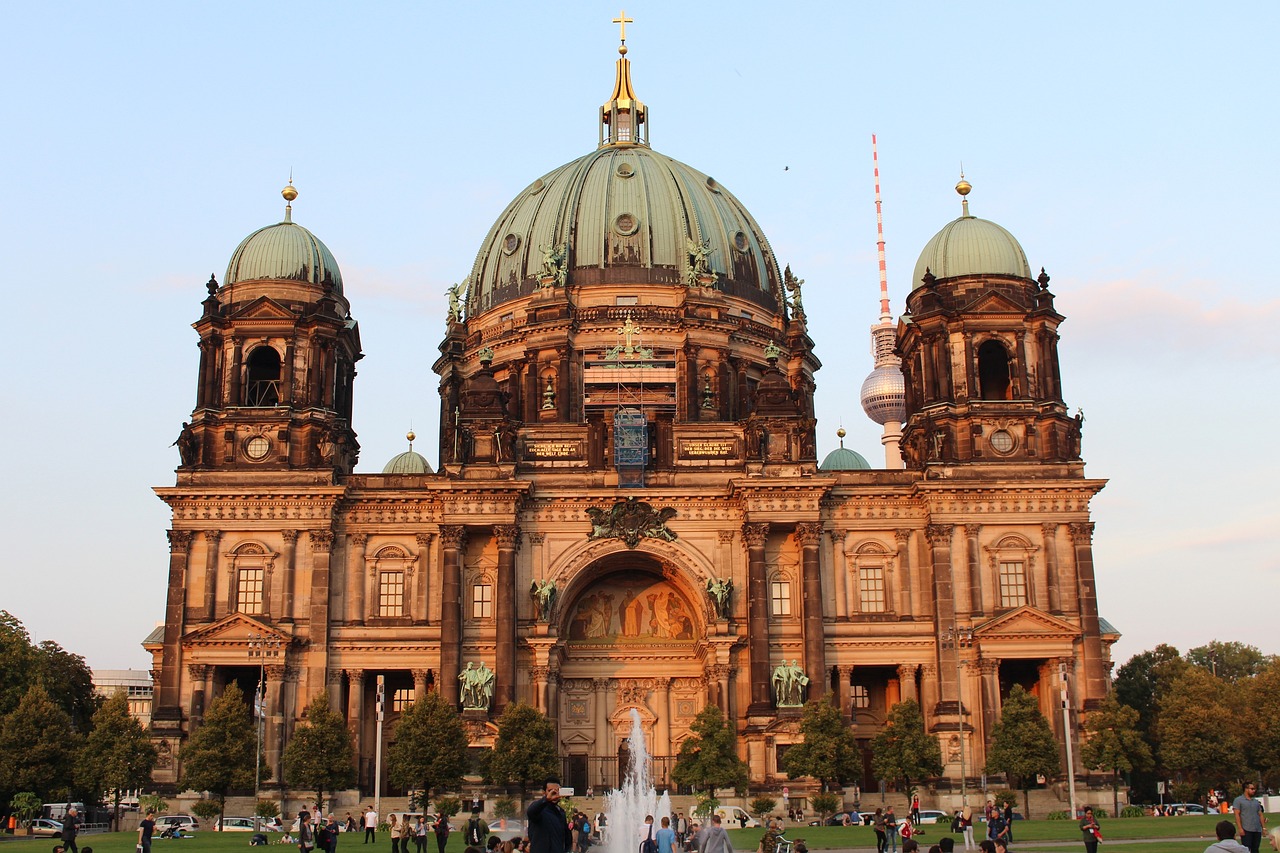The Historical Significance of the Berlin Conference
The Berlin Conference of 1884-1885 holds immense historical significance, shaping the course of African colonization and European power dynamics in profound ways. This pivotal event, convened in Berlin by Otto von Bismarck, set the stage for the infamous scramble for Africa among European powers, marking a critical juncture in global history.

Background of the Berlin Conference
The Berlin Conference of 1884-1885 holds immense historical significance, shaping the course of African colonization and European imperialism. This pivotal event was convened under the initiative of Otto von Bismarck, the Chancellor of the German Empire, with the primary objective of regulating and organizing European colonial activities in Africa. The backdrop of the conference was characterized by intense competition among European powers for territorial expansion, resources, and economic dominance.
At the time, European nations were fervently engaged in the exploration and exploitation of Africa, driven by economic motives, strategic interests, and the desire for global supremacy. The Berlin Conference provided a platform for major European powers, including Britain, France, Germany, Portugal, and Belgium, to negotiate and formalize their territorial claims in Africa while establishing guidelines for future colonization efforts.
One of the key motivations behind the convening of the Berlin Conference was to prevent potential conflicts and clashes between European powers vying for control over African territories. By delineating spheres of influence and establishing rules for territorial acquisition, the conference aimed to maintain a semblance of order and stability in the scramble for Africa.
Moreover, the Berlin Conference reflected the imperialistic ambitions of European nations, seeking to expand their empires and exploit the vast resources and labor force available in Africa. The decisions made during the conference not only legitimized the colonization of Africa but also laid the foundation for the subjugation and exploitation of indigenous populations for economic gain.
Overall, the background of the Berlin Conference underscores the complex interplay of political, economic, and strategic interests that drove European imperialism in Africa during the late 19th century. The outcomes of the conference would have far-reaching consequences for the continent, shaping its future trajectory and leaving a lasting legacy of colonialism and exploitation.

Key Players and Agreements
Exploring the impact and implications of the Berlin Conference of 1884-1885 on the colonization of Africa and the subsequent scramble for territories among European powers.
Understanding the context and motivations behind the convening of the Berlin Conference by Otto von Bismarck to regulate European colonization and trade in Africa.
The Berlin Conference brought together major European powers such as Germany, France, Britain, Portugal, and Belgium to negotiate and establish guidelines for the colonization of Africa. One of the key agreements was the principle of effective occupation, which allowed European nations to claim territories in Africa by demonstrating effective control over them. This led to the carving up of Africa into spheres of influence, with each European power securing its own colonial holdings.
The agreements made at the Berlin Conference fueled intense colonial rivalries among European powers vying for control over African resources and territories. This competition often escalated into conflicts and wars as nations sought to expand their colonial empires and secure dominance in Africa.
The decisions of the Berlin Conference had devastating consequences for African societies. The arbitrary drawing of borders disregarded existing tribal territories and led to the disruption of traditional cultures, economies, and political systems. Many indigenous populations faced exploitation, forced labor, and cultural suppression under European colonial rule.
The legacy of the Berlin Conference continues to shape the modern African continent. The division of Africa by European powers laid the foundation for enduring political, social, and economic challenges that many African nations still grapple with today.
The aftermath of the Berlin Conference spurred resistance and independence movements across Africa as indigenous populations fought against colonial oppression and sought self-determination. Leaders such as Nelson Mandela, Kwame Nkrumah, and Jomo Kenyatta emerged as key figures in the struggle for independence from colonial powers.
The Berlin Conference not only reshaped the African continent but also had far-reaching global implications. It influenced the balance of power among European nations, set precedents for future colonial endeavors, and contributed to the establishment of a global order characterized by imperial dominance and exploitation.
Reflecting on the lessons of the Berlin Conference reminds us of the enduring impacts of imperialism and colonialism. The conference serves as a stark reminder of the injustices inflicted upon African societies and prompts critical examination of the ongoing legacy of European domination in Africa.
Stay tuned for the answers to commonly asked questions about the Berlin Conference, its consequences, and its lasting effects on the African continent.

Colonial Rivalries and Conflicts
During the Berlin Conference of 1884-1885, the European powers engaged in intense colonial rivalries that ultimately led to conflicts over territorial control in Africa. The decisions made during the conference ignited a race among the European nations to expand their empires and assert dominance over African lands. This competition for resources, markets, and strategic advantages fueled tensions and hostilities among the colonial powers, setting the stage for future conflicts.
The scramble for territories in Africa intensified as each European nation sought to stake its claim and secure valuable resources. The competition was not only about economic gains but also about political influence and military power. This aggressive pursuit of colonial territories created a volatile environment where rival powers clashed over boundaries, trade routes, and spheres of influence.
As the colonial rivalries escalated, so did the conflicts between European powers vying for control in Africa. Border disputes, trade disagreements, and strategic interests often led to confrontations and even wars between competing nations. The quest for supremacy in Africa drove the European powers to resort to force and coercion to assert their dominance, resulting in violent clashes and bloodshed.
The colonial rivalries and conflicts that emerged from the Berlin Conference had profound implications for the African continent. The imposition of colonial rule disrupted indigenous societies, undermined traditional governance structures, and exploited natural resources for the benefit of the colonizers. The power struggles among European nations played out on African soil, leaving a legacy of exploitation, oppression, and lasting scars on the continent.

Impact on African Societies
The resulting from the Berlin Conference of 1884-1885 was profound and far-reaching. The decisions made during this pivotal event had detrimental effects on the traditional cultures, economies, and political systems of African societies.
One of the most significant impacts was the disruption of traditional cultures. The arbitrary drawing of borders by European powers disregarded existing tribal territories and ethnic boundaries, leading to the fragmentation and destabilization of indigenous communities. This division often resulted in the forced cohabitation of rival ethnic groups, sparking tensions and conflicts that persist to this day.
Moreover, the economic consequences of the Berlin Conference were severe for African societies. The imposition of colonial rule disrupted local economies, as European powers exploited the vast resources of the continent for their own benefit. African communities were often coerced into producing cash crops for export, leading to the neglect of subsistence farming and a dependence on imported goods.
The political systems of African societies were also profoundly affected by the decisions made at the Berlin Conference. Traditional forms of governance were undermined, as European colonial administrations imposed their own systems of rule, often favoring indirect rule through local collaborators. This eroded the authority of indigenous leaders and institutions, leading to widespread disenfranchisement and disempowerment.
Furthermore, the social fabric of African societies was torn apart by the introduction of colonial policies that sought to assimilate indigenous populations into European cultural norms. This cultural imperialism undermined the rich diversity of African traditions and languages, leading to the marginalization and suppression of local customs and beliefs.
In summary, the impact of the Berlin Conference on African societies was profound and enduring. It left a legacy of exploitation, division, and cultural erosion that continues to shape the social, economic, and political landscape of the continent. The scars of colonialism run deep, and the repercussions of this historic event are still felt by African nations striving to reclaim their autonomy and forge their own path towards development and prosperity.

Legacy of the Berlin Conference
After the Berlin Conference of 1884-1885, the legacy left behind was profound and far-reaching, shaping the course of African history for decades to come. The agreements made during this pivotal event not only divided up the African continent among European powers but also set the stage for a long and tumultuous period of colonization and exploitation.
One of the most significant legacies of the Berlin Conference was the arbitrary drawing of borders that paid little heed to the ethnic, cultural, and linguistic realities of the African societies living within them. This act of partitioning led to the creation of artificial nations, often merging disparate groups and sowing the seeds of future conflicts and tensions.
Furthermore, the conference legitimized the concept of European dominance over African lands and resources, laying the foundation for the systematic exploitation of the continent's wealth. The economic legacy of the Berlin Conference can still be felt today, as many African nations continue to grapple with the repercussions of colonial-era resource extraction and unequal trade relationships.
In addition to the economic and political consequences, the Berlin Conference also left a lasting impact on the social fabric of African societies. The imposition of European laws, customs, and governance structures disrupted traditional systems of authority and undermined local autonomy, leading to widespread social dislocation and cultural erosion.
Moreover, the legacy of the Berlin Conference is intertwined with the history of resistance and struggle for independence in Africa. The arbitrary borders and colonial administrations created as a result of the conference fueled nationalist movements and liberation struggles across the continent, as African peoples fought to reclaim their sovereignty and self-determination.
Overall, the legacy of the Berlin Conference is a complex tapestry of exploitation, resistance, and resilience that continues to shape the modern African landscape. It serves as a stark reminder of the enduring impact of colonialism and the ongoing struggle for justice, equality, and self-determination in the post-colonial era.

Resistance and Independence Movements
Resistance and independence movements in Africa were direct responses to the oppressive colonial rule imposed by European powers following the Berlin Conference. African nations, stripped of their autonomy and resources, began to resist and fight back against their colonizers. These movements were characterized by a strong sense of national identity and a desire for self-determination.
Leaders such as Jomo Kenyatta in Kenya, Kwame Nkrumah in Ghana, and Nelson Mandela in South Africa emerged as symbols of resistance, inspiring their people to stand up against colonial oppression. These movements were not only about reclaiming political independence but also aimed at restoring cultural heritage and economic freedom.
The resistance took various forms, from non-violent protests and civil disobedience to armed uprisings and guerrilla warfare. The Mau Mau Uprising in Kenya, the Algerian War of Independence, and the Soweto Uprising in South Africa are just a few examples of the diverse strategies employed by African nations in their quest for freedom.
These movements were met with brutal repression and violence from colonial authorities, leading to countless sacrifices and casualties among the African population. However, the resilience and determination of the freedom fighters eventually led to the dismantling of colonial regimes and the birth of independent African nations.
Independence movements not only liberated African countries from foreign domination but also set a precedent for other colonized regions around the world. The struggle for independence in Africa served as a beacon of hope for oppressed peoples everywhere, inspiring movements for freedom and self-governance in various parts of the globe.

Global Implications and Repercussions
The of the Berlin Conference of 1884-1885 reverberated far beyond the borders of Africa, shaping the course of international relations and geopolitics for decades to come. The decisions made during this conference had a profound impact on the power dynamics between European nations and set the stage for future conflicts and alliances.
One of the most significant global implications of the Berlin Conference was the acceleration of the Scramble for Africa, as European powers rushed to stake their claims on African territories. This intense competition for resources and strategic advantages in Africa not only heightened tensions among European nations but also set the groundwork for future conflicts as rivalries intensified.
Furthermore, the repercussions of the Berlin Conference extended beyond the continent of Africa, influencing the balance of power on a global scale. The division of African territories among European powers reshaped the geopolitical landscape, leading to shifts in alliances and rivalries that reverberated across continents.
The conference also had lasting effects on the modern world order, as the boundaries and divisions created during this period continue to impact international relations to this day. The legacy of the Berlin Conference serves as a stark reminder of the consequences of imperialistic ambitions and the enduring impact of colonialism on the global stage.

Lessons Learned and Contemporary Relevance
The Berlin Conference of 1884-1885 stands as a stark reminder of the devastating impact of colonialism on Africa. It serves as a lesson on the consequences of unchecked imperialism and the exploitation of resources at the expense of indigenous populations. The arbitrary division of African territories without regard for ethnic or cultural boundaries has left a lasting legacy of conflict and instability on the continent. The scars of the Berlin Conference continue to shape the socio-political landscape of Africa today, highlighting the importance of respecting sovereignty and self-determination.
Furthermore, the conference underscores the need for global cooperation and diplomacy in addressing complex issues that transcend national borders. The failure to involve African leaders in the decision-making process at the Berlin Conference serves as a cautionary tale against unilateral actions that disregard the voices of those most affected. It emphasizes the importance of inclusive dialogue and mutual respect in resolving conflicts and fostering sustainable development.
In a contemporary context, the legacy of the Berlin Conference resonates in debates surrounding reparations for historical injustices and the promotion of equitable trade relations. The exploitation of Africa's natural resources during the colonial era continues to impact the economic development of the continent, highlighting the need for fair trade practices and responsible investment. The lessons learned from the Berlin Conference call for a reevaluation of power dynamics and a commitment to addressing the legacies of colonialism in a meaningful and constructive manner.
As we reflect on the lessons of the Berlin Conference, it is crucial to recognize the agency and resilience of African nations in overcoming the challenges imposed by colonial rule. The legacy of resistance movements and independence struggles serves as a testament to the enduring spirit of liberation and self-determination. By acknowledging the past injustices of the Berlin Conference, we can work towards a more just and equitable future for all nations, free from the shadows of imperialism and exploitation.
Frequently Asked Questions
- What was the main purpose of the Berlin Conference?
The main purpose of the Berlin Conference was to regulate European colonization and trade in Africa. It aimed to prevent conflicts among European powers over African territories by establishing guidelines for territorial claims and trade routes.
- Which European powers were involved in the Berlin Conference?
The major European powers involved in the Berlin Conference included Germany, France, Britain, Portugal, Italy, Belgium, Spain, and the Ottoman Empire. These nations participated in discussions and negotiations regarding the division of African territories.
- How did the decisions made at the Berlin Conference impact African societies?
The decisions made at the Berlin Conference had detrimental effects on African societies. They led to the disruption of traditional cultures, economies, and political systems, causing long-lasting harm to the social fabric of many African communities.
- What were the long-term consequences of the Berlin Conference?
The Berlin Conference had lasting impacts on the political, social, and economic development of Africa. It fueled resistance and independence movements as African nations sought to break free from colonial rule. The conference also had global implications, influencing international relations and power dynamics.
- Why is the legacy of the Berlin Conference still relevant today?
The legacy of the Berlin Conference remains relevant today as it raises important questions about imperialism, colonialism, and the enduring effects of European domination in Africa. The conference serves as a historical reminder of the complexities and repercussions of colonialism in shaping the modern world order.



















